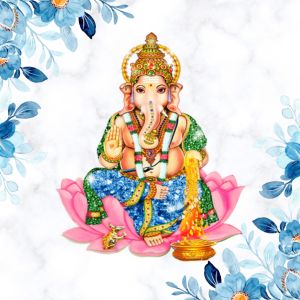Dasharatha's Grief Decoded
In the epic tale of Ramayana, Dasharatha, the father of Lord Rama, experiences immense sorrow upon being separated from his beloved son. This poignant narrative raises questions about Dasharatha's ability to endure such separation and the timing of his demise. Let's delve deeper into this emotional journey and explore the answers provided by Tulsidas Ji.
Dasharatha's Separation: Dasharatha had experienced separation from Lord Rama before when he was sent on a mission with Sage Vishwamitra. Despite this, he managed to bear the separation. But why was it different this time?
Insights from Tulsidas Ji: Before sending Lord Rama with Vishwamitra, Sage Vasishta reassured Dasharatha about Vishwamitra's capability to protect Rama. Vishwamitra's purpose was not his inability but his commitment to a vow for the yajna. Dasharatha trusted Vishwamitra's fatherly affection for Rama and believed in his swift return.
Understanding Vanavasa: However, when Rama chose to embark on vanavasa (exile) voluntarily to honor his father's word, the situation changed. Dasharatha's heartache intensified as he bid farewell to his son, expecting his return in a few days.
Heartbreak and Demise: When Minister Sumantra returned without Rama, Dasharatha's anguish knew no bounds. He realized that Rama's exile would last for 14 years, leading to his tragic demise. Dasharatha's deep sorrow was exacerbated by his sense of guilt for sending Rama away.
Conclusion: The Ramayana offers profound insights into Dasharatha's emotional turmoil and the complexities of separation. By understanding the reasons behind his grief, we gain a deeper appreciation for the human experiences depicted in this timeless epic.
- Trust in the wisdom and guidance of respected figures can help alleviate worries during times of separation or adversity.
- Commitment to vows and duties, even at personal cost, is a noble virtue exemplified by both Sage Vishwamitra and Lord Rama.
- Acceptance of inevitable circumstances, such as Rama's voluntary exile, is a crucial aspect of emotional resilience.
- Guilt and remorse stemming from decisions made in difficult situations can intensify feelings of sorrow and regret.
- Reflecting on the complexities of human emotions portrayed in ancient narratives like the Ramayana can offer valuable insights into our own experiences of love, loss, and longing.
Recommended for you
Ganesha Mantra For Success in Studies

om gam ganapataye sarvavighnaharaaya sarvaaya sarvagurave lambodaraaya hreem gam namah' svaahaa .....
Click here to know more..Wives of Bhima

Bhima had three wives and three sons. Lear more.......
Click here to know more..Sri Rama Ashtottara Shatanamavali

ॐ श्रीरामाय नमः । ॐ रामभद्राय नमः । Om shriramaya namah . Om ramabhadraya namah .....
Click here to know more..
English Topics
Ramayana
Click on any topic to open
- 50 Janaka's Spiritual Evolution - From Jnana to Bhakti
- 49 Dasharatha's Grief Decoded
- 48 Shiva burned Kamadeva at Chhapra, Bihar
- 47 Motherhood brilliance - Kausalya Supraja Rama
- 46 Bala and Atibala Mantras - Sriram Ji will unfold their superpower
- 45 Dasharatha Pleads With Vishwamtra Not To Take Away Young Sriram Ji
- 44 Abandoning Of Sita Devi - Is It Justifiable?
- 43 Vishwamitra Wants To Take Young Sriram Ji With Him
- 42 Position Of Sages In Ancient Bharata
- 41 Horoscope of Sriram Ji
Please wait while the audio list loads..
30
Ganapathy
Shiva
Hanuman
Devi
Vishnu Sahasranama
Mahabharatam
Practical Wisdom
Yoga Vasishta
Vedas
Rituals
Rare Topics
Devi Mahatmyam
Glory of Venkatesha
Shani Mahatmya
Story of Sri Yantra
Rudram Explained
Atharva Sheersha
Sri Suktam
Kathopanishad
Ramayana
Mystique
Mantra Shastra
Bharat Matha
Bhagavatam
Astrology
Temples
Spiritual books
Purana Stories
Festivals
Sages and Saints
